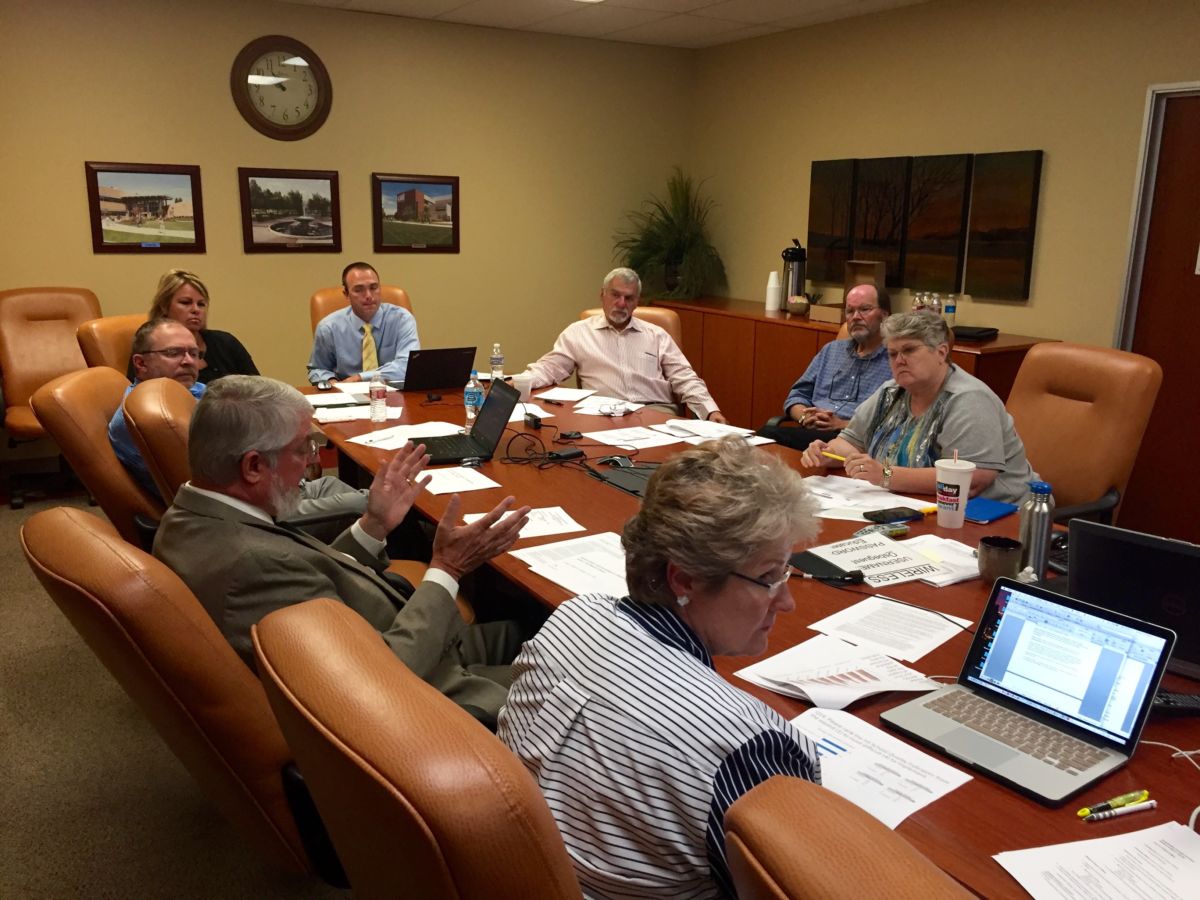Educators and taxpayers who are hungry for answers about development of the closely watched school accountability model will have their chance to learn details and provide feedback this fall.
Throughout September and October, State Board of Education officials will stage a series of seven regional public forums on the topic of accountability.
The forums kick off Sept. 7 in Boise and run through October (see a schedule at the bottom of this article. Dates for forums in Lewiston and Coeur d’Alene are being confirmed this week).

Last week, State Board of Education members voted unanimously to grant initial approval to a new public school accountability model designed to comply with the federal Every Student Succeeds Act.
Policymakers and school administrators will field test the accountability model through a “dry run” during the upcoming 2016-17 school year.
The move is important because Idaho’s schools have so far not been subject to government accountability at any point during Superintendent of Public Instruction Sherri Ybarra’s term. State officials repealed the controversial Five Star Rating system in 2014, under previous schools chief Tom Luna.
Under state and federal timelines, Idaho schools will be subject to the new accountability model that was approved last week in 2017-18.
“This is an opportunity to look at how we can measure the effectiveness of programs in our schools and what we are doing for students,” said Tracie Bent, the State Board’s chief planning and policy officer.
Educators are watching the process closely. Accountability was among the most-talked about issues during this month’s Idaho Association of School Administrators conference in Boise. When Bent and State Board spokesman Blake Youde presented a preview of the accountability system, superintendents and principals filled every seat in a Boise convention room – with even more crowding against the room’s wall, on the floor and out a door into the hallway.
Although the State Board gave initial approval last week, several aspects of the accountability plan are still being developed. Those include several indexes that would be displayed in an online “data dashboard” presenting information about academic performance and school quality. Those indexes and definitions relate to students’ next-level readiness, teacher quality, student engagement and more, Bent said.
Once those definitions and terms are developed — based partially on feedback during the public hearings this fall — administrators will be responsible for gathering and reporting that data to the state at the end of the school year, Bent said.
In some cases, the dashboard and accountability model are likely to create additional reporting requirements for schools.
After state officials collect the data — and following an auditing and appeal process — State Board of Education officials will build and launch the online data dashboard through a state website or the SBOE’s existing website. The dashboard is a term that is being used to describe a webpage that will present a series of quality and academic achievement data points.
State officials are also discussing strategies for presenting that data — or a link to the data — on each school district’s local website.
“That is really another area where the test run will be valuable,” Bent said. “We could find out some indicators don’t tell us what we thought they would tell us, in which case we want to consider changing them before submitting the final plan.”
Another important part of the accountability model is also under development this fall. SBOE officials are accepting public input and crafting the consolidated state plan, another ESSA requirement. That consolidated state plan is the document where the state reports to the federal government what is measured for accountability, timelines for school improvement and what happens to schools under an improvement plan.
Following this fall’s public comment windows, the State Board is expected to take up the accountability system during a special meeting in November. Board members would then forward that to the Legislature in the form of an administrative rule in early 2017.
In December, the State Board is expected to consider action on the consolidated state plan. If there are no changes made to the consolidated state plan, it will be submitted to the U.S. Department of Education in March.
Bent and Youde said the accuracy of data is an important component of the accountability system. As such, they will strive to provide training and technical assistance to local schools.
“If we don’t have good data showing how we are making a difference and improving education for our children, then your policy-setting turns into throwing a handful of darts at a dartboard,” Bent said. “We need it to be accurate.”
School accountability public forum schedule (all events run from 6 p.m. – 8 p.m. local time).
- Sept. 7, Boise School District Office, 8169 W. Victory Road.
- Sept. 8, Ridgevue High School, college lecture hall Room 190, 118800 Madison Road, Nampa.
- Sept. 13, College of Southern Idaho, Shields Academic Building, Room 118, Twin Falls.
- Sept. 21, Eastern Idaho Technical College, Health Care Education Building, Room 6164, 1600 South 25th East, Idaho Falls.
- Sept. 22, Idaho State University, Pond Student Union, Middle/South Fork rooms, Pocatello.
Further reading:
A glimpse at the new accountability system: 8/11/2016 “State Board approves new accountability model.”
